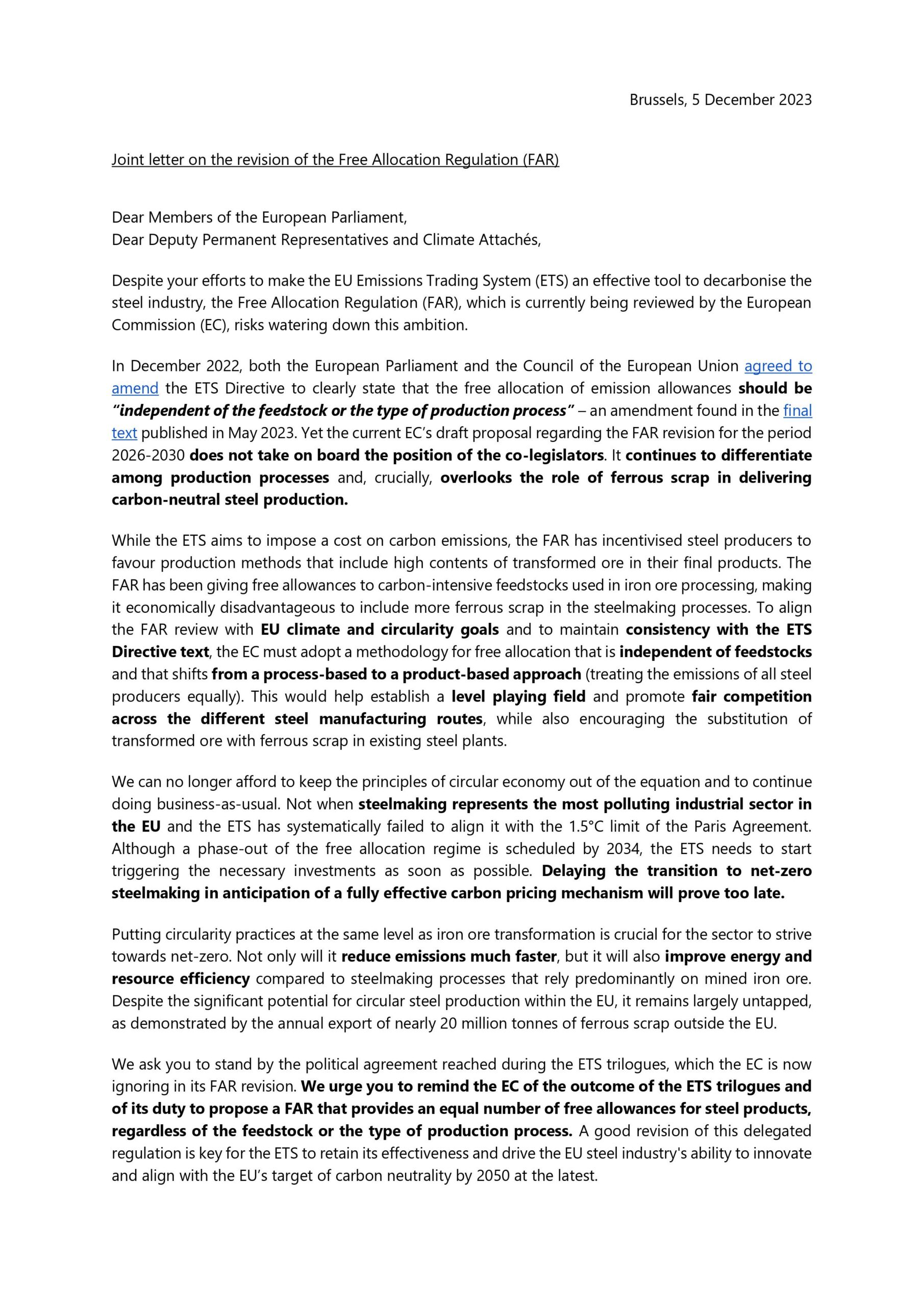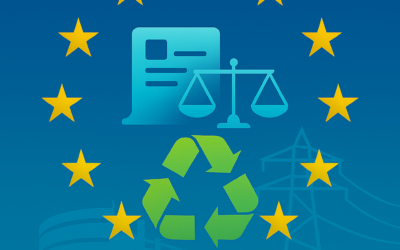The proposed FAR rewards steel plants using transformed virgin ores (hot metal and direct reduced iron) with free emission permits, but by doing so, penalises those using recycled scrap. This contradicts the political mandate that the Parliament and the Council gave to the Commission. The revised EU ETS Directive, clearly stated that free emission allowances should be distributed in a way that is “independent of the feedstock or the type of production process” (Recital 10), yet the draft legal act published yesterday by the Commission continues to discriminate between feedstocks in steelmaking.
The revision of the Free Allocation Regulation is the last chance to fix a system that continues to reward the most carbon-intensive steel production methods. The allocation method of free permits needs to –and still can – be fixed. We and the 12 other signatories of this joint letter call upon the co-legislators to react while there is still time, and ask the Commission to take our concerns into consideration as part of the ongoing public consultation. We hope to see this issue resolved in the final draft of the revised FAR.
A solution to fix the hot metal/DRI benchmark
Sandbag developed a proposal to improve the free allocation method. It only affects the hot metal/DRI benchmark proposed by the Commission and would not change, on average, the number of free allowances received by steel plants. We have submitted this proposal to the Expert Group on Climate Change Policy, tasked with advising the Commission on the revision of the FAR.
Read More:
Steel labelling: Beyond the sliding scale
As EU policymakers debate how to certify low-carbon steel, Sandbag’s new briefing analyses the “sliding scale” method — and outlines why it may hinder rather than help decarbonisation. A new model is proposed based on product-specific benchmarks, multi-tier ratings, and circularity incentives.
Scrap Steel at Sea: How ship recycling can help decarbonise European steel production
As Europe seeks to decarbonise its steel industry, a new Sandbag report highlights an overlooked solution: high-quality scrap steel from retired ships. With up to 15 million tonnes of certified scrap available annually, ship recycling could meet 20% of EU steel scrap demand — if policy gaps are addressed.
Sandbag’s feedback to the call for evidence on the Circular Economy Act
Sandbag welcomes the Circular Economy Act (CEA) as an important step to accelerate the transition to a circular economy in the EU. Progress in this area has been slow and this act is sorely needed to address systemic issues holding back circularity, including the current fragmented approaches across Member States.




